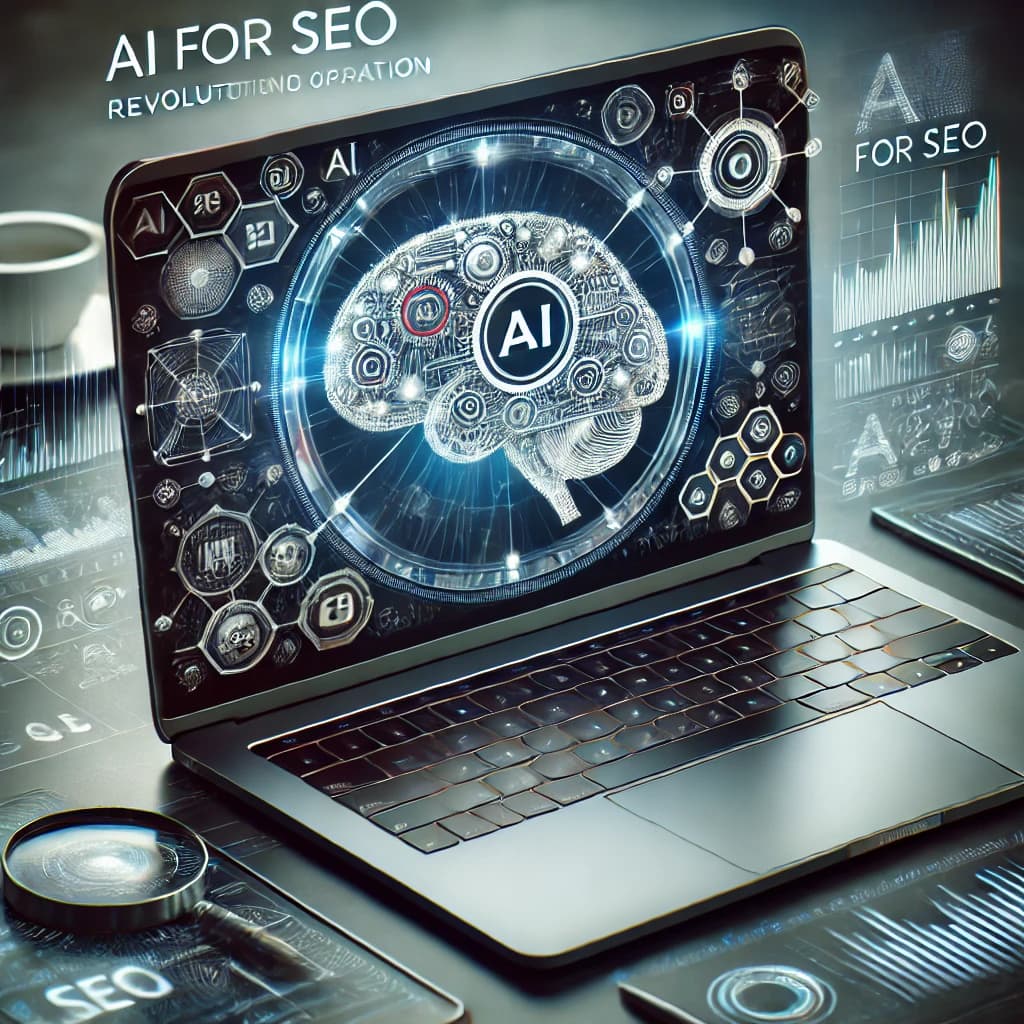What are you looking for?
THE TECH PRODUCT
THE DESIGN STUDIO
THE MEDIA HOUSE
THE MARKETING STUDIO
THE AR LAB

Discover how AI is revolutionizing SEO with smarter keyword research, content optimization, and automation. Learn the tools and strategies to boost your rankings.
In the fast-paced world of digital marketing, staying ahead in search engine optimization (SEO) is crucial. With the rise of Artificial Intelligence (AI), SEO has undergone a massive transformation, making processes smarter, faster, and more effective. In this comprehensive guide, we’ll dive into how AI is reshaping SEO, the tools driving this change, and how businesses can leverage AI to stay ahead of the competition.
AI for SEO refers to the use of artificial intelligence technologies to optimize websites and content for better search engine rankings. AI automates repetitive tasks, analyzes vast amounts of data, and provides actionable insights that would otherwise take humans hours—or even days—to uncover.
AI tools like SEMRush, Ahrefs, and Google Keyword Planner analyze millions of search queries to identify high-volume, low-competition keywords. These tools also predict future keyword trends, helping businesses stay ahead.
Example: Instead of manually sifting through keyword suggestions, AI algorithms can suggest terms aligned with your niche, user intent, and current search trends.
AI helps optimize content for both users and search engines by:
AI evaluates website performance metrics like bounce rates, page load speeds, and mobile responsiveness to enhance the user experience—an essential ranking factor.
AI Tools for UX:
AI-powered tools like DeepCrawl and Screaming Frog can:
AI uses historical data to predict:
Example: Using AI, e-commerce websites can forecast which products to promote based on search behavior patterns.
With the rise of virtual assistants like Alexa and Google Assistant, AI tailors content for conversational queries. AI tools identify long-tail keywords that match natural speech patterns.
Here’s a list of must-have AI tools revolutionizing SEO:
AI automates repetitive tasks like keyword analysis and site audits, freeing up time for strategic planning.
AI eliminates guesswork, offering data-backed recommendations for content and technical improvements.
AI identifies changing search behaviors, ensuring your strategies stay relevant.
AI can analyze user behavior to deliver personalized content recommendations, improving engagement and conversions.
By streamlining processes and improving rankings, AI helps businesses achieve more with less effort and investment.
AI for SEO involves using artificial intelligence to automate and improve various aspects of search engine optimization, including keyword research, content optimization, and site audits.
AI analyzes vast amounts of search data to identify high-performing keywords, predict trends, and align suggestions with user intent.
AI enhances SEO processes but doesn’t replace the need for human expertise in strategy, creativity, and decision-making.
Popular AI tools include SEMRush for research, MarketMuse for content optimization, and DeepCrawl for technical audits.
While some AI tools are costly, many offer tiered pricing plans, making them accessible for businesses of all sizes.
AI is no longer just a buzzword—it’s a practical, transformative force in SEO. From streamlining tasks to offering deep insights, AI empowers businesses to stay competitive in a rapidly changing digital landscape. By adopting AI-driven strategies, you can optimize your site, improve user experience, and achieve higher rankings with less effort.
Ready to revolutionize your SEO strategy? Start exploring AI-powered tools today and see the difference it makes in your rankings!